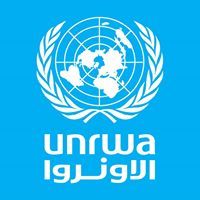UPDATE
While the Washington Post has updated a misleading hyperlink, it has refused to make any further changes. See more in the update section at the end of this post.
The Palestinians are the only refugee population that have their own dedicated UN agency. The United Nations Relief and Works Agency for Palestine Refugees in the Near East (UNRWA) is responsible for administering for Palestinian refugees in Jordan, Lebanon, Syria, the Gaza Strip and the West Bank.
UNRWA confers refugee status on the descendants of Palestinians displaced during the events surrounding Israel’s War of Independence ad infinitum. Hence the number of Palestinians with refugee status has ballooned to some 5 million today from an estimated 700,000 in 1948.
Inherited refugee status is not the case, however, for any other refugee population. The UN High Commissioner for Refugees (UNHCR) deals with all other refugees and defines a refugee as “someone who has been forced to flee his or her country because of persecution, war or violence.”
However, foreign affairs commentator Ishaan Tharoor, giving his thoughts in the Washington Post on US President Donald Trump’s cessation of funding for UNRWA writes:
The White House, along with Israel’s right wing, argues that the rolls of recognized refugees should be limited to those alive in 1949 — a move at odds with other U.N. operations that also confer refugee status upon the descendants of the displaced.
 Tharoor links to the UNHCR page for Afghan refugees whose descendants, like those of other refugees administered to by UNHCR, do not, unless under exceptional circumstances (unlike Palestinians who receive it by default), automatically receive refugee status.
Tharoor links to the UNHCR page for Afghan refugees whose descendants, like those of other refugees administered to by UNHCR, do not, unless under exceptional circumstances (unlike Palestinians who receive it by default), automatically receive refugee status.
Put simply, Tharoor has made a fundamental error.
Agree or disagree with Trump’s move but it certainly is not “at odds with other UN operations that also confer refugee status upon the descendants of the displaced” – because there are none.
We’ve written to the Washington Post to request a correction.
UPDATE
In an email exchange with HonestReporting, the Washington Post told us that it does not intend to make any changes or corrections other than to the misleading Afghan refugees hyperlink, giving these reasons:
UNHCR‘s Handbook on Procedures and Criteria for determining Refugee Status provides in paragraph 184: “If the head of a family meets the criteria of the definition, [for refugee status] his dependants are normally granted refugee status according to the principle of family unity.”
Chapter 5 of UNHCR’s Procedural Standards for Refugee Status Determination holds that, in accordance with the refugee’s right to family unity, refugee status is transferred to descendants. Chapter 5.1.2: “the categories of persons who should be considered to be eligible for derivative status under the right to family unity include:” “all unmarried children of the Principal Applicant who are under 18 years.”
Chapter 5.1.1: “individuals who obtain derivative refugee status enjoy the same rights and entitlements as other recognised refugees and should retain this status notwithstanding the subsequent dissolution of the family through separation, divorce, death, or the fact that the child reaches the age of majority.”

In response, we consulted with Professor Eugene Kontorovich, a specialist in international and constitutional law, who said:
UNHCR can, on a case by case basis, give “derivative” refugee status to children – this means they are not labelled refugees but given some of the benefits. It is not automatic but on an ad hoc basis.
UNRWA is the opposite – automatic, and one is labelled an actual refugee. This is a real and objective difference in definitions with a real effect – only UNRWA refugees increase in number over generations (because the “derivative” status is not typically granted).
Also, derivative status can only be granted to kids with refugee status, so the grandchildren are just out of picture completely, unlike with UNRWA where it gets passed down already four or five generations automatically.
And of course , for things like the “right of return,” it matters, as only refugees count, not those getting derivative benefits.
A highly informative analysis in The Times of Israel also addresses the differences between UNRWA and UNHCR, including those UNHCR clauses quoted by the Washington Post.
So while the Washington Post might conceivably claim that the reality is potentially more complicated than it first appears, that is not the message in Ishaan Tharoor’s article. There are clearly significant differences between UNRWA and UNHCR definitions, treatment of refugees and the long-term policy consequences.
We still maintain that arguing “that the rolls of recognized refugees should be limited to those alive in 1949 — a move at odds with other U.N. operations that also confer refugee status upon the descendants of the displaced” is misleading and deserves a clarification or further context on the part of the Washington Post.


